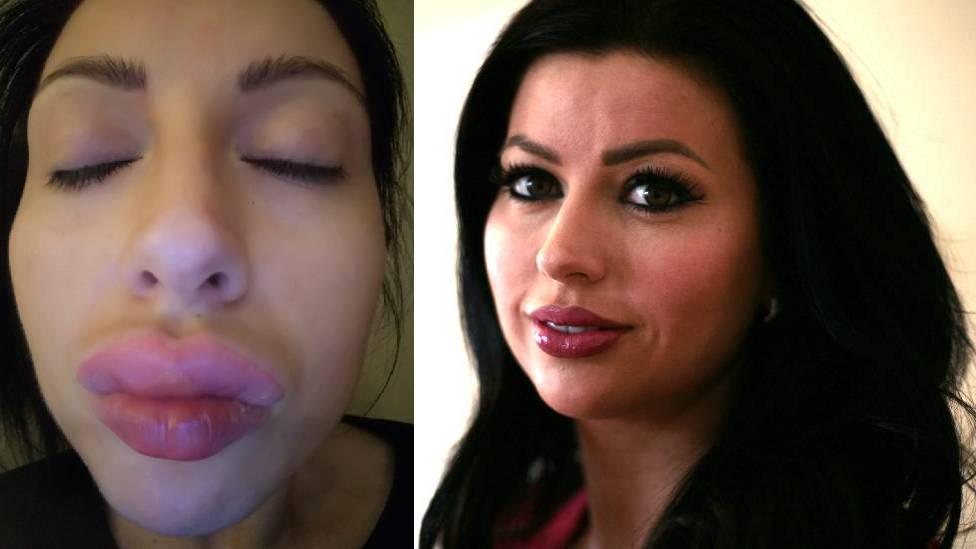Lip filler was 'like having golf ball injected'
- Published
'My lip filler treatment went badly wrong'
As a trained midwife, Karen McCrimmon assumed the private clinic she went to for lip fillers would have the same safeguards as the NHS.
She assumed the professional-looking Cool Contours clinic in Glasgow would be regulated and fully insured.
More than anything she assumed the staff would be medically trained and know what to do if things went wrong. Her assumptions proved unfounded.
Like thousands of Scots each year, Karen wanted what they offered: a younger-looking face.
She was told her lip filler would be pain free but instead it felt as if a "golf ball had been shot into my lip".
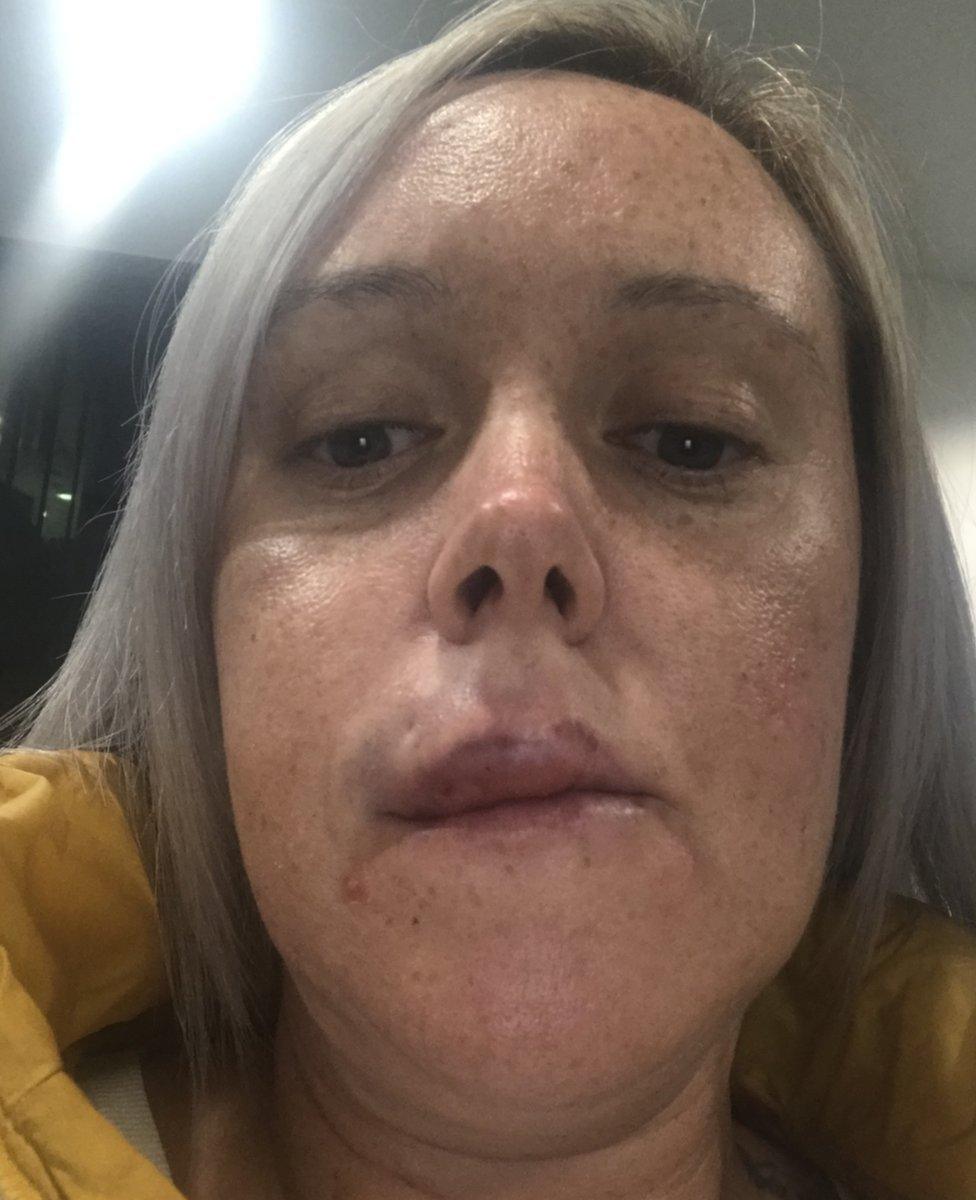
Karen's lip began to swell after the procedure

When her top lip started to swell, Karen said the beautician looked "horrified" and said she had never experienced anything like it before.
"She offered antihistamines instead of anti-inflammatories," Karen told BBC Scotland's Disclosure. "That was when I realised she had no medical training. My lips were swelling up and I knew I needed medical attention."
By the next day, Karen's face was turning blue around her mouth, her lips were swollen and the inside of her gum was turning black.
She found a clinic in Hamilton with a medically trained aesthetic nurse who knew what the problem was and how to treat it.
"Basically the blood flow had been stopped to the rest of my face and it was getting worse by the minute," Karen said. "It was a medical emergency."

What are dermal fillers?
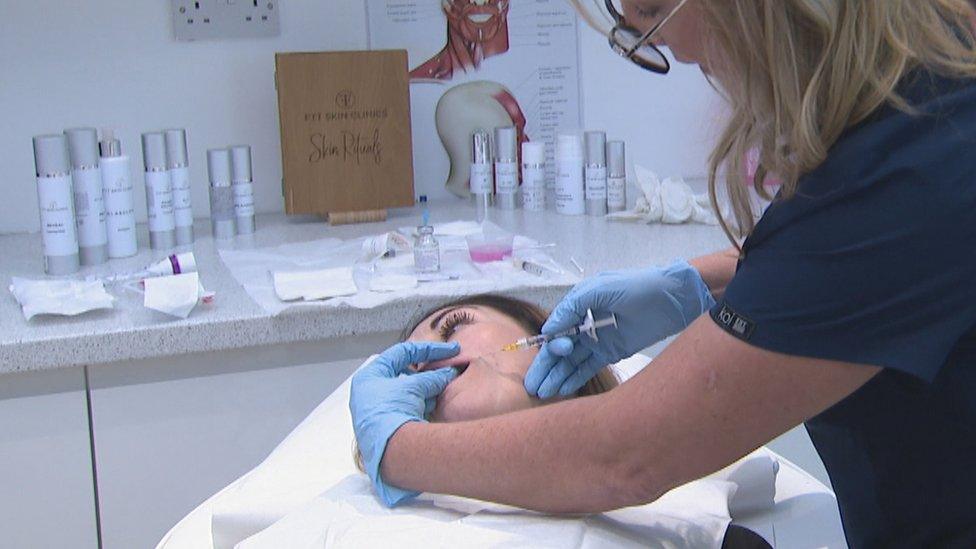
Thousands of people have dermal filler injections each year
Tens of thousands of people now get dermal filler treatment across Scotland each year.
It is usually an injection into the face of something called hylauronic acid which helps to fill wrinkles and add volume to tissue.
But as its popularity increases, so do the complications which include the risk of infection, blocked arteries, necrosis, blindness and stroke.
Hundreds of companies across the UK offer dermal fillers but there are currently no rules about who can inject you with filler, nor what training they should have had.
Four years on from a Scottish government report calling for major reforms, experts said too little had changed.
The BBC understands the Scottish government is looking to introduce local authority licensing of clinics offering dermal fillers by non-medically trained staff. This would be similar to the licensing on tattoo parlours.
Experts told the BBC this would not solve the problem of unqualified people administering medical injections.
Aesthetic nurse Suzanne Armstrong, who was part of the Scottish expert group, told the BBC there needed to be legislation to ensure all clinics were run by healthcare professionals.
"We are now at the point that patients are being harmed and we need to address this urgently," she said.
"I completely understand that the health service faces many issues and many problems and that sometimes these things seem small potatoes but there is no reason why something that we actually produced recommendations for four years ago cannot be acted on within that period of time."

'Worst complications I have ever seen'
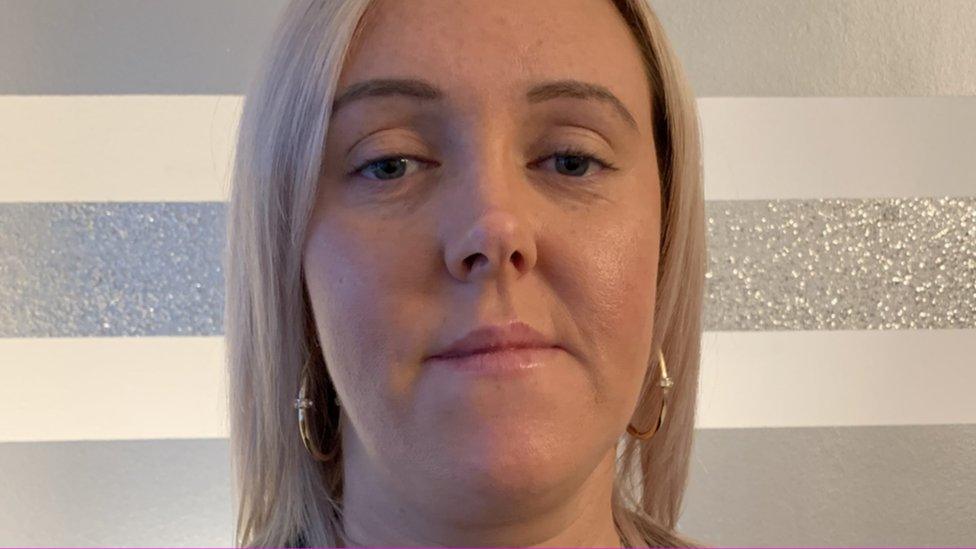
Karen has now fully recovered after her treatment
When Karen's dermal fillers went wrong it was Frances Turner Traill's clinic that agreed to try to remedy the complications.
Ms Turner Traill worked as a nurse before training in aesthetics and prescribing.
She said Karen's were the worst complications she had ever seen.
"It was very serious," she said. "It caused a huge haematoma or bruise which affected the veins and arteries around her face so it required quite a bit of input to get that back working to ensure her tissue was no longer dying.
"We were already looking at who was on call in the NHS for plastic surgery."
Asked what would have happened if left untreated, Ms Turner Traill said: "She would have had to have to have been admitted to hospital and she could potentially have lost part of her face."
Cool Contours was unavailable for comment.
Influencers like the Kardashians

Celebrities like Kylie Jenner have helped popularise lip fillers
Social media images and influencers such as the Kardashians have led to a huge increase in women and men seeking out the procedures.
Non-surgical treatments such as Botox and fillers account for nine out of 10 cosmetic procedures in the UK and are worth about £2.75bn a year.
But the non-surgical cosmetic industry is almost entirely unregulated.
Ken Stewart, the plastic surgery adviser to the Scottish government, compared the existing system to the "wild west". He said he regularly saw patients who had complications from fillers who had not even been told about the risks in advance.
"You can get very serious complications from fillers and potentially have a stroke," he said. "You can go blind and have loss of tissue in your face."
He said the current regulation meant "inappropriate people can do inappropriate things in inappropriate places with inappropriate training".
A Scottish government spokeswoman said that since the publication of the expert group report in 2015 independent clinics run by a doctor, dentist, nurse, midwife or dental technician had to register with Healthcare Improvement Scotland before they could legally provide cosmetic procedures.
She said that "phase 2" would propose new regulations for non-medically trained providers.
The spokeswoman said: "The introduction of licensing will mean that non-medical premises, for example beauty or hairdressing salons, will be subject to inspection for both safety and hygiene. Licensing will also take training, competence and client care, both pre and post procedure, into account."
Experts said this was not enough to protect patients as it would make no difference to the qualifications of the person doing the procedure.

Previous Disclosure investigations include:
- Published23 April 2019
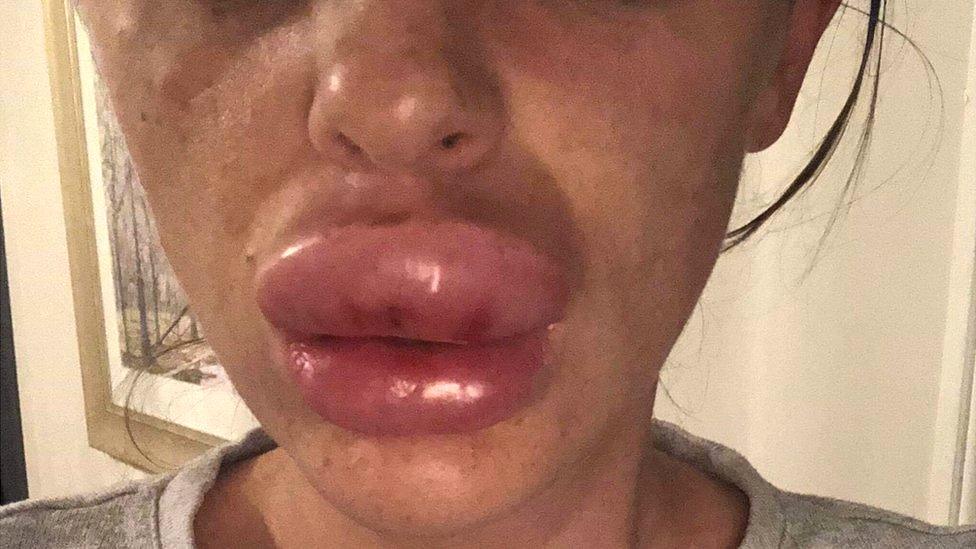
- Published28 March 2019
